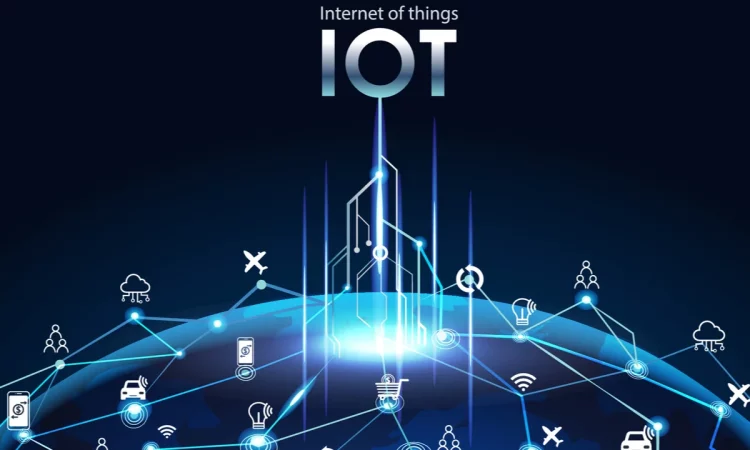
The Internet of Things (IoT) has brought about a revolution in the way businesses operate and people live. IoT solutions have made it possible to connect and automate devices, enabling seamless data exchange and insights. To effectively utilize the benefits of IoT solutions, businesses require an IoT platform that can manage and orchestrate IoT devices and data. In this blog, we will discuss the developing trends and technology in IoT platforms and what the future holds for this rapidly growing field.
Developing Trends in IoT Platforms
Edge computing, 5G networks, AI, and blockchain technology are some of the developing trends in IoT platforms.
1. The growth of edge computing
Edge computing involves processing data locally on the device, reducing latency and increasing efficiency. As a result, edge computing has become a crucial trend in IoT platforms, enabling real-time data analysis and response.
2. The emergence of 5G networks
The deployment of 5G networks has enabled faster data transfer rates, lower latency, and increased device connectivity. This trend has facilitated the development of advanced IoT platforms capable of handling massive amounts of data.
3. The rise of AI and machine learning
AI and machine learning algorithms are increasingly being used in IoT platforms to analyze and make sense of the vast amounts of data generated by IoT devices. This trend has enabled more accurate predictions, better insights, and improved decision-making.
4. The increased adoption of blockchain technology
Blockchain technology is becoming increasingly popular in IoT platforms due to its ability to provide secure and transparent data storage and transfer. This trend has enabled more secure and reliable data management, reducing the risk of cyber-attacks.
III. Technological Advancements in IoT Platforms
IoT platforms have undergone significant technological advancements in recent years, improving IoT security solutions, IoT device management, IoT analytics, and IoT interoperability.
1. The development of IoT security solutions
IoT security solutions have become more sophisticated to address the growing security concerns associated with IoT platforms. These solutions now include encryption, access controls, and threat detection, ensuring data security and privacy.
2. The improvement of IoT device management
IoT device management has evolved to include features such as remote device management, firmware updates, and device monitoring. This trend has enabled businesses to manage their IoT devices more efficiently, reducing downtime and improving device performance.
3. The evolution of IoT analytics
IoT analytics has become more advanced, enabling businesses to extract more value from their IoT data. These analytics now include predictive analytics, prescriptive analytics, and real-time analytics, enabling businesses to make informed decisions and act quickly.
4. The enhancement of IoT interoperability
IoT interoperability has improved significantly, enabling devices from different manufacturers to communicate and work together seamlessly. This trend has enabled businesses to deploy IoT solutions more easily and cost-effectively, increasing the adoption of IoT technology.
5. Future of IoT Platforms
The future of IoT platforms is bright, with the potential to transform industries and improve sustainability.
6. The impact of IoT platforms on industries
IoT platforms have the potential to transform industries by enabling automation, improving efficiency, and reducing costs. Industries such as healthcare, transportation, and agriculture can benefit from IoT solutions, enabling better patient care, safer transportation, and increased crop yields.
7. The potential of IoT platforms in improving sustainability
IoT platforms can also play a crucial role in improving sustainability by enabling better resource management, reducing waste, and increasing energy efficiency. For example, smart grids can optimize energy usage, and smart agriculture can reduce water consumption.
8. The challenges and opportunities in the future of IoT platforms
While the future of IoT platforms is promising, there are also challenges that need to be addressed. One major challenge is the need for better cybersecurity measures to protect against cyber-attacks. As IoT platforms become more integrated into critical infrastructure, the potential for cyber-attacks becomes more significant. Another challenge is the need for standardization in IoT technology to enable better interoperability between devices and platforms.
Conclusion
In conclusion, IoT platforms have undergone significant technological advancements, enabling businesses to utilize IoT solutions more effectively. Developing trends such as edge computing, 5G networks, AI, and blockchain technology are shaping the future of IoT platforms. The future of IoT platforms is promising, with the potential to transform industries and improve sustainability. However, there are also challenges that need to be addressed, such as cybersecurity and standardization. As IoT technology continues to evolve, it is essential to stay informed and adapt to these changes to stay competitive in the market.
FAQs
What are some of the challenges associated with IoT platforms?
Some of the challenges associated with IoT platforms include cybersecurity, standardization, and interoperability.
What is the future of IoT platforms in terms of cybersecurity?
The future of IoT platforms in terms of cybersecurity involves the development of more sophisticated security solutions, including encryption, access controls, and threat detection. Additionally, there will be a need for better standardization and regulatory frameworks to ensure the security of IoT devices and data.
What types of IoT devices can be connected to an IoT platform?
An IoT platform can connect to a wide range of devices, including sensors, cameras, smart appliances, wearables, and more.
How can businesses ensure the privacy and security of IoT data?
To ensure the privacy and security of IoT data, businesses can implement strong access controls, encryption, and threat detection measures. Additionally, businesses can regularly update their devices and software to address any vulnerabilities.
What are some of the most popular IoT platforms available?
Some of the most popular IoT platforms available include AWS IoT, Microsoft Azure IoT, Google Cloud IoT, and IBM Watson IoT.
How can IoT platforms be used in agriculture?
IoT platforms can be used in agriculture to monitor soil moisture levels, crop growth, and weather conditions. This information can be used to optimize crop yields and reduce water usage.
